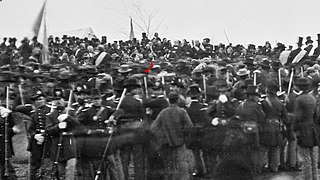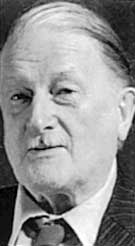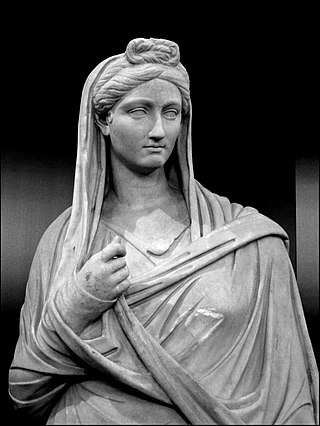Related Research Articles

Marcus Tullius Cicero was a Roman statesman, lawyer, scholar, philosopher, writer and Academic skeptic, who tried to uphold optimate principles during the political crises that led to the establishment of the Roman Empire. His extensive writings include treatises on rhetoric, philosophy and politics. He is considered one of Rome's greatest orators and prose stylists and the innovator of what became known as "Ciceronian rhetoric". Cicero was educated in Rome and in Greece. He came from a wealthy municipal family of the Roman equestrian order, and served as consul in 63 BC.

Public speaking, also called oratory, is the practice of delivering speeches to a live audience. Throughout history, public speaking has held significant cultural, religious, and political importance, emphasizing the necessity of effective rhetorical skills.

Rhetoric is the art of persuasion. It is one of the three ancient arts of discourse (trivium) along with grammar and logic/dialectic. As an academic discipline within the humanities, rhetoric aims to study the techniques that speakers or writers use to inform, persuade, and motivate their audiences. Rhetoric also provides heuristics for understanding, discovering, and developing arguments for particular situations.
A sophist was a teacher in ancient Greece in the fifth and fourth centuries BCE. Sophists specialized in one or more subject areas, such as philosophy, rhetoric, music, athletics and mathematics. They taught arete, "virtue" or "excellence", predominantly to young statesmen and nobility.

Strabo was a Greek geographer, philosopher, and historian who lived in Asia Minor during the transitional period of the Roman Republic into the Roman Empire. He is best known for his work Geographica ("Geography"), which presented a descriptive history of people and places from different regions of the world known during his lifetime. Additionally, Strabo authored historical works, but only fragments and quotations of these survive in the writings of other authors.

Sir Ronald Syme, was a New Zealand-born historian and classicist. He was regarded as the greatest historian of ancient Rome since Theodor Mommsen and the most brilliant exponent of the history of the Roman Empire since Edward Gibbon. His great work was The Roman Revolution (1939), a masterly and controversial analysis of Roman political life in the period following the assassination of Julius Caesar.

Gaius Sallustius Crispus, usually anglicised as Sallust, was a historian and politician of the Roman Republic from a plebeian family. Probably born at Amiternum in the country of the Sabines, Sallust became a partisan of Julius Caesar, circa 50s BC. He is the earliest known Latin-language Roman historian with surviving works to his name, of which Conspiracy of Catiline on the eponymous conspiracy, The Jugurthine War on the eponymous war, and the Histories remain extant. As a writer, Sallust was primarily influenced by the works of the 5th-century BC Greek historian Thucydides. During his political career he amassed great and ill-gotten wealth from his governorship of Africa.

In ancient Rome, the plebeians or plebs were the general body of free Roman citizens who were not patricians, as determined by the census, or in other words "commoners". Both classes were hereditary.

Classical antiquity, also known as the classical era, classical period, classical age, or simply antiquity, is the period of cultural European history between the 8th century BC and the 5th century AD comprising the interwoven civilizations of ancient Greece and ancient Rome known together as the Greco-Roman world, centered on the Mediterranean Basin. It is the period during which ancient Greece and ancient Rome flourished and had major influence throughout much of Europe, North Africa, and West Asia.

Freeborn women in ancient Rome were citizens (cives), but could not vote or hold political office. Because of their limited public role, women are named less frequently than men by Roman historians. But while Roman women held no direct political power, those from wealthy or powerful families could and did exert influence through private negotiations. Exceptional women who left an undeniable mark on history include Lucretia and Claudia Quinta, whose stories took on mythic significance; fierce Republican-era women such as Cornelia, mother of the Gracchi, and Fulvia, who commanded an army and issued coins bearing her image; women of the Julio-Claudian dynasty, most prominently Livia and Agrippina the Younger, who contributed to the formation of Imperial mores; and the empress Helena, a driving force in promoting Christianity.

Optimates and populares are labels applied to politicians, political groups, traditions, strategies, or ideologies in the late Roman Republic. There is "heated academic discussion" as to whether Romans would have recognised an ideological content or political split in the label.
Prosopography is an investigation of the common characteristics of a group of people, whose individual biographies may be largely untraceable. Research subjects are analysed by means of a collective study of their lives, in multiple career-line analysis. The discipline is considered to be one of the auxiliary sciences of history.
Lucius Licinius Crassus was a Roman orator and statesman who was a Roman consul and censor and who is also one of the main speakers in Cicero's dramatic dialogue on the art of oratory De Oratore, set just before Crassus' death in 91 BC. He was considered the greatest orator of his day by his pupil Cicero.

Arnold Hugh Martin JonesFBA, known also as A. H. M. Jones or Hugo Jones, was a prominent 20th-century British historian of classical antiquity, particularly of the later Roman Empire.

Education in ancient Rome progressed from an informal, familial system of education in the early Republic to a tuition-based system during the late Republic and the Empire. The Roman education system was based on the Greek system – and many of the private tutors in the Roman system were enslaved Greeks or freedmen. The educational methodology and curriculum used in Rome was copied in its provinces and provided a basis for education systems throughout later Western civilization. Organized education remained relatively rare, and there are few primary sources or accounts of the Roman educational process until the 2nd century AD. Due to the extensive power wielded by the pater familias over Roman families, the level and quality of education provided to Roman children varied drastically from family to family; nevertheless, Roman popular morality came eventually to expect fathers to have their children educated to some extent, and a complete advanced education was expected of any Roman who wished to enter politics.

Publius Cornelius Tacitus, known simply as Tacitus, was a Roman historian and politician. Tacitus is widely regarded as one of the greatest Roman historians by modern scholars.
Titus Cassius Severus was an ancient Roman rhetor from the gens Cassia. He was active during the reigns of Augustus and Tiberius. Cassius Severus, a fearless fighter for freedom of speech, was sharply eloquent against the new governmental order, which finally saw him exiled and his works banned after his death.
A prosopographical network is a system which represents a historical group made up by individual actors and their interactions within a delimited spatial and temporal range. The network science methodology offers an alternative way of analyzing the patterns of relationships, composition and activities of people studied in their own historical context. Since prosopography examines the whole of a past society, its individuals who made it up, and its structure, this independent science of social history uses a collective study of biographies of a well-defined group, in a multiple career analysis, for collecting and interpreting relevant quantities of data, these same set of data can be employed for constructing a network of the studied group. Prosopographical network studies have emerged as a young and dynamic field in historical research; nevertheless, the category of prosopographical network is in its formative, initial phase and as a consequence it is hard to view as a stable and defined notion in history and beyond social network analysis. See also narrative network.
The overthrow of the Roman monarchy was an event in ancient Rome that took place between the 6th and 5th centuries BC where a political revolution replaced the then-existing Roman monarchy under Lucius Tarquinius Superbus with a republic. The details of the event were largely forgotten by the Romans a few centuries later; later Roman historians presented a narrative of the events, traditionally dated to c. 509 BC, but it is largely believed to be fictitious by modern scholars.
Catherine Elizabeth Wannan Steel, is a British classical scholar. She is Professor of Classics at the University of Glasgow. Steel is an expert on the Roman Republic, the writings of Cicero, and Roman oratory.
References
- ↑ A Companion to Roman Rhetoric (Blackwell, 2010), p. 493.
- ↑ Susan Treggiari, Roman Social History (Routledge, 2002), n.p.
- ↑ Alexander, "Oratory, Rhetoric, and Politics," p. 103.
- ↑ Michael C. Alexander, "Oratory, Rhetoric, and Politics in the Republic," in A Companion to Roman Rhetoric, p. 102.
- ↑ Alexander, "Oratory, Rhetoric, and Politics in the Republic," pp. 102–103, 108.
- ↑ Alexander, "Oratory, Rhetoric, and Politics," pp. 102–103.